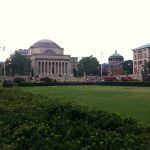Last week I won the lottery. No, I’m not a multi-million dollar Powerball winner. I won the opportunity to see former UN Secretary General Kofi Annan speak at Columbia University.
The discussion ranged from the UN’s failure to prevent the Rwandan genocide – which Secretary Annan blamed on a lack of international political will following the “Blackhawk Down” incident in Somalia – to the current crisis in Syria.
Annan briefly touched on his resignation as UN special peace envoy to Syria, blaming UN’s failure to broker peace on the international community’s failure to close ranks against the Assad regime (specifically blaming China and Russia’s intransigence). Annan mentioned his successful mission to Kenya as an example of what the international community can accomplish when it speaks with one voice. As chief negotiator in 2008, he successfully brokered a deal between President Mwai Kibaki and Raila Odinga to form a coalition government. Still, I can’t help but wonder if Annan was the best choice in Syria given the context. Simply put, Annan is not a muslim and does not carry the same authority in the Middle East as he does in Africa.
What are your thoughts on this? Let me know in the comments section below.
Participating in this event was an amazing opportunity that I doubt I would have had at any other school. That said, I was so drained from my statistics midterm the day before that Annan’s quiet and monotonous voice nearly put me to sleep during his opening remarks. Note to self: drink more coffee.






